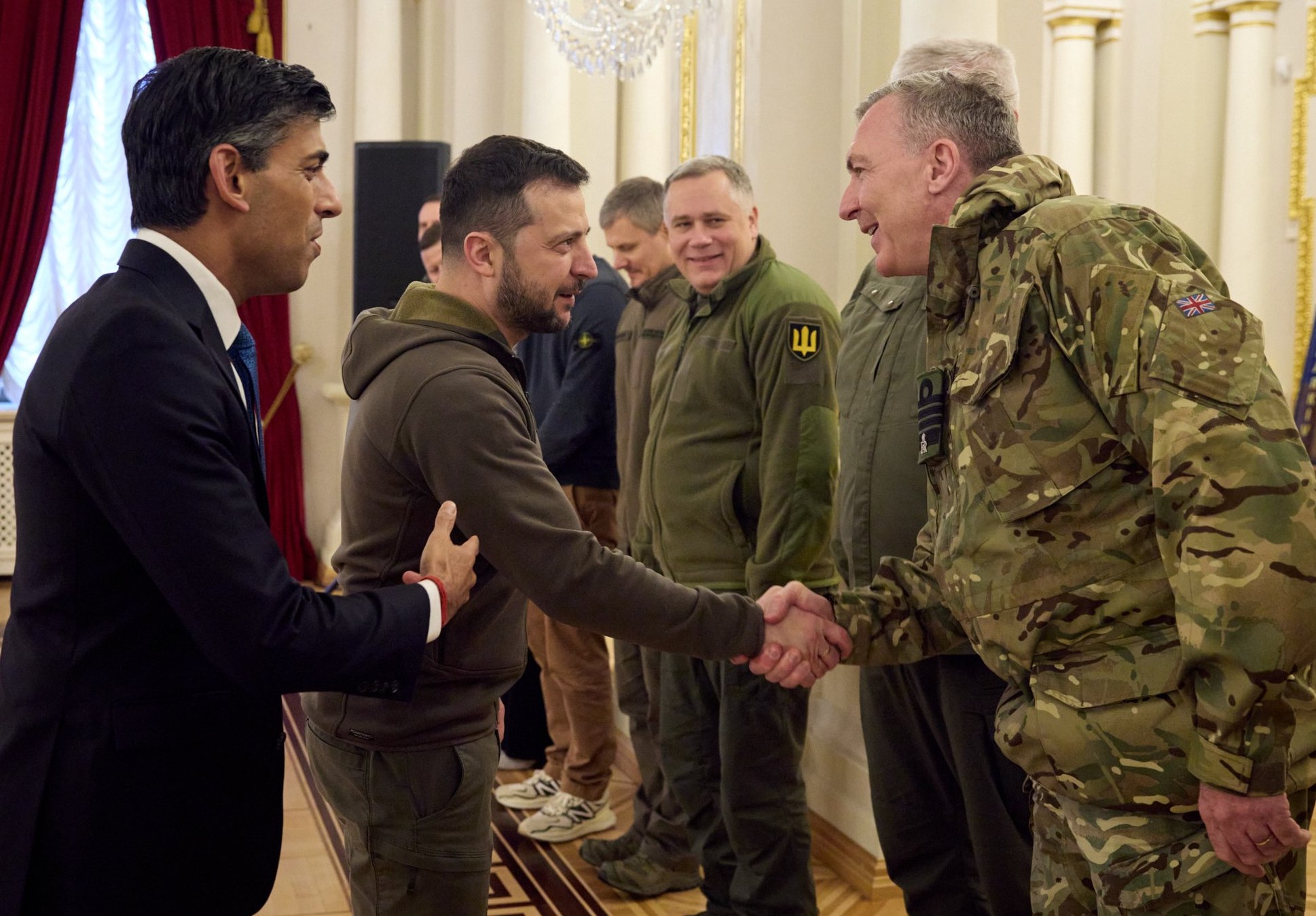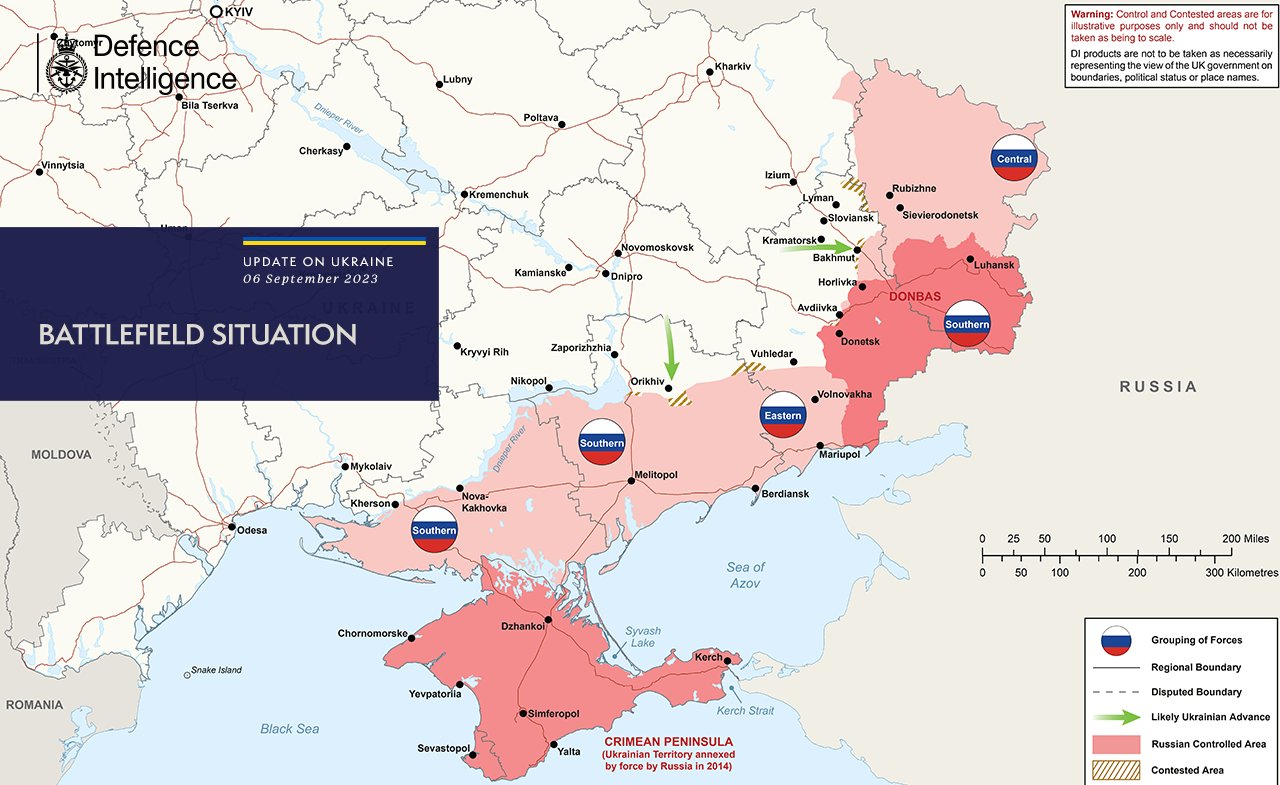
Ukraine has regained about half of the land Russia seized since the invasion began in February 2022, the United Kingdom chief of the defense staff said Thursday.
Adm. Sir Tony Radakin told a Hudson Institute audience Thursday that the Russian land force’s combat effectiveness has been reduced by 50 percent.
Radakin said that Ukraine’s achievement on the battlefield shouldn’t solely be measured tactically by how much territory it has regained in the summer counteroffensive but put up against Kyiv’s resolve to preserve its independence. “Conflicts morph” and “Ukraine will adapt.”
Ukraine “is never going back to the East,” he said pointing to Kyiv’s desire to enter the European Union and become a NATO member.
For Europe and many nations in the Indo-Pacific, the war in Ukraine is one being fought over preserving a rules-based order where violence doesn’t get its way, he said. The war “has been a catastrophic failure for Russia.”
Radakin pointed to a stronger NATO with Finland and Sweden now members since the unprovoked attack. The Baltic nations make the alliance stronger militarily and more united. London is prepared to be the leading European nation in NATO and will maintain its nuclear capability to deter attacks of any kind on a member.
Russia is under increasing international pressure as a result of the Kremlin’s artillery shelling and missile strikes on housing and hospitals and infrastructure, like grain-exporting ports and power stations, Radakin said.
Nations outside of NATO and in the Indo-Pacific realize “the threat is that Russia is using violence for political ends” and other powers could try an identical “bankrupt approach” in a crisis. He pointed to the more than 50 nations physically attending the U.S.-sponsored conferences on aiding Ukraine economically and militarily as proof of the widespread commitment to preserve self-determination.
Radakin praised Washington for its leading role Washington in aiding Ukraine without escalating the war. “America bears that responsibility even more than the rest of us” to keep the aid flowing. He added that the United Kingdom is proud of its ability to back Kyiv. London was among the first nations to send main battle tanks, advanced artillery and air defense systems to Ukraine.
“It’s a team approach,” he said.
When Russia threatened to use tactical nuclear weapons, China, India and Saudi Arabia, while remaining officially neutral, warned the Kremlin against such a dangerous move.
“That threat has been pushed away,” he said.
Radakin said that warning from China demonstrates that Beijing’s and Moscow’s strategic partnership only goes so far. It also does not include selling weapons and munitions to Russia to replenish its stockpiles. He termed Russia “desperate” enough for military supplies that it must “cozy up to North Korea and Iran.”

For China’s leadership, Radakin added the lesson “should be bloody obvious” to be very wary of a military predicting a quick victory by invading a neighbor. If Beijing attacked Taiwan, Radakin said China would have to conduct an amphibious invasion against a resolved public as the Russians face in Ukraine. He noted that Beijing was also aware that the “overall impact [of sanctions and diplomacy] has been very significant” on Russia’s economy and relations with other nations.
To the United Kingdom, “Russia remains the acute threat.” He added London and Europe understand that events in the Indo-Pacific have an impact on them in terms of trade, especially as global warming makes the Northern Sea Route more attractive, and global security.
“Europe powers [are] all doing more in the Indo-Pacific,” he said.
He praised American leadership “in the forging of a strategic relationship” with India and broadening the scope of its alliances with Australia and Japan through the Quad. The Quad is the regional informal economic and security arrangement among Washington, New Delhi, Tokyo and Canberra that offers alternatives to China.
“The bigger piece [to Indo-Pacific security] is to deter” conflict with China “and not getting into the trap of preparing for instability and violence.”





